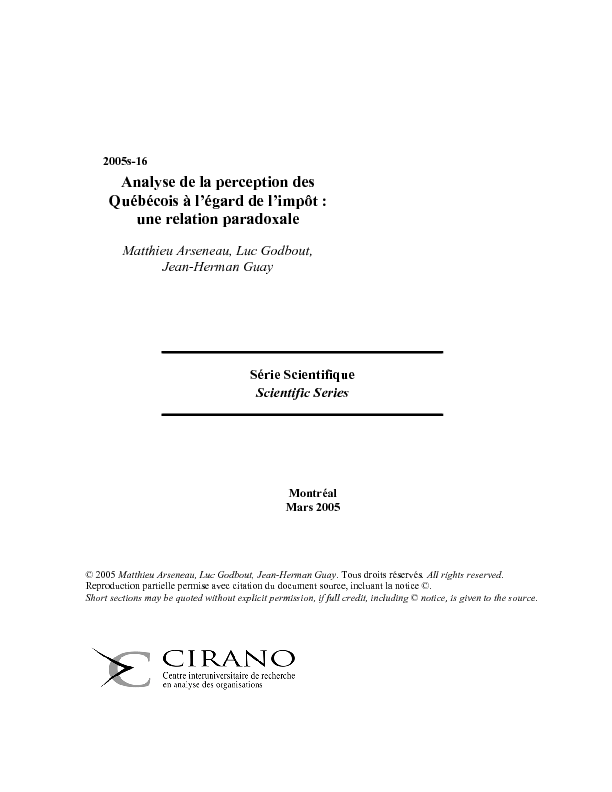Analyse de la perception des Québécois à l'égard de l'impôt :
une relation paradoxale
This paper analyses a survey undertaken by the polling firm CROP between the 20th and the 31st of January 2005. The 21 questions presented in this study concern the Quebec population's perception of fiscal issues. Several issues are examined such as budgetary choices and fiscal administration as well as the size of the tax burden and it's distribution among the various tax brackets. As well as analysing the survey results, the authors contribute to the debate by presenting additional relevant information on these issues. Primarily, the results show a general consensus within the Quebec population on major issues. In fact, there is no major ideological division. Moreover, the authors detect a degree of ambiguity in that those polled want a reduction of the Quebec tax burden and, at the same time, wish to see eventual surpluses serve to increase spending on social services. The results show that, the Quebec population is most favourably inclined towards taxes when the allocation of resources thus raised is clearly defined. In this regard, the Quebec population would even favour, in certain cases, an increase in the consumption tax (TVA) if the proceeds were to finance policies they prioritize. Finally, even though an important proportion of the population pay little or no income tax, those polled believe that, on the whole, low and middle incomes individuals are taxed too heavily and that high income individuals are not sufficiently taxed.
[ - ]




